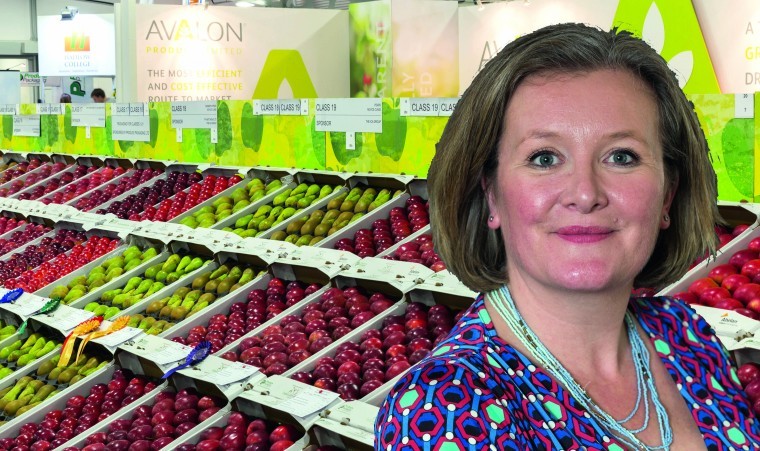It’s March and therefore I am writing about Fruit Logistica and technical days…
The Berlin show was buzzing as always, full of new machinery, packaging concepts and the huge stands for the big brands.
There were a few notable interesting bits of technology that will be good for top fruit – laser plu application has finally come up to speed and spec for one. The ability to remove that small piece of plastic (compostable PLU labels were also at the show) from every piece of loose fruit and instead laser on the essential details without increasing rots is a great step forward. Grading and packing machinery utilising the latest robotic technology, improved speed and accuracy of cameras, more detailed programmes for the detection of internal defects; all aimed at improving quality guarantees, removing the number of staff on a grader and getting the maximum out of a bin.
The British pavilion, hosted by UKTi and AHDB was busy throughout the show, the companies who took part in the area were busy, many meetings were hosted and a lot of business was being done.
The BIFGA technical day, well attended as always, had a strong and varied programme for the membership. New Leaf Irrigation kicked off with a stark reminder of the long term impacts of the 2018 long dry spell – the ongoing issues with water tables, the replenishment of reservoirs and the impact on livestock feed stocks for the winter.
The EAP long term strategy was referenced in terms that if 60% of the market place was to be British Fruit then good irrigation and fertigation were an essential part of the technological move forward that included varietal selection, investment in storage and creating a more stable size profile through input (water) management. British growers need to make a profit from the additional production to make it viable, because irrigation drives yield to drive profit. We need to grow fruit in the optimal size banding. Irrigation allows you to manipulate the fruit to realise the tree’s full potential without having to thin the fruit to achieve optimum size. Any good orchard manager knows that a tree going into drought stress produces variable sized apples. Without irrigation the only way to produce the desired size will be thinning. Therefore tonnage is reduced accordingly (65 – 50t/ha for instance). Quality in the optimal size banding also increases as the tree stress is reduced. Crop loading is managed and therefore there is less long term stress reducing quality of fruit bud.
Meteorologists state that we will have more extreme weather patterns in the future, extremes of water – flooding which doesn’t penetrate the soil or drought which creates long term damage.
With the Agrovista and FAST meetings in the same week (only a few repeats on speakers) there were a lot of topics covered and some very lively discussions.
Before I go I want to congratulate John Breach on receiving the Fruiterers Lewis award, presented at the Livery’s annual banquet at the Mansion House. He joins an illustrious cohort that includes Adrian Barlow, Lawrence Olins and Nick Marston; the award recognises significant contributions to the fruit industry and nobody can deny that John has worked tirelessly on our behalf.




